The heartbeat is considered the source of vitality, but if we do not know how to care for, protect and identify potential dangers from cardiovascular disease, it will leave many unpredictable dangers. Here are some common types of cardiovascular disease that we need to pay attention to.

Common types of cardiovascular diseases in the elderly
Coronary artery disease
This is one of the most common cardiovascular diseases, it occurs when the arteries supplying blood to the heart become narrowed or blocked by a buildup of cholesterol plaque, fat and other waste products. This reduces blood flow to the heart, leading to a lack of oxygen and nutrients to the heart muscle, causing a heart attack.
Signs and symptoms: When at risk of coronary artery disease, patients often have signs of chest pain when exerting or stressed, shortness of breath and fatigue. Sometimes there are no obvious symptoms, especially in women, so it is necessary to pay close attention.
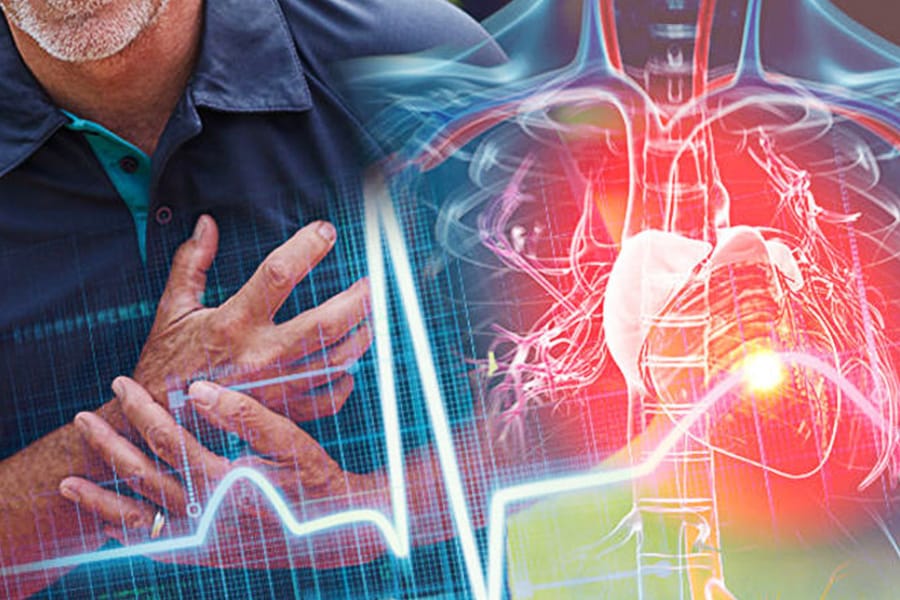
If you have the above symptoms, you need to control your blood pressure and cholesterol regularly through a healthy diet, limit salt and saturated fat, limit stress, exercise regularly and say no to cigarettes and alcohol.
Heart failure is common in people with cardiovascular disease.
This condition can occur when the heart is damaged, causing heart function to decline because the heart cannot pump enough blood and oxygen to nourish the body. This can lead to the risk of myocardial infarction, prolonged high blood pressure, or other diseases such as heart valve disease, which then leads to heart failure.
Signs and symptoms: Like coronary artery disease, heart failure has the most noticeable symptom of shortness of breath, especially when lying down or exerting yourself. The disease is also accompanied by symptoms of edema in the ankles, feet or abdomen. When the disease occurs, the body will also show signs of fatigue and rapid weight gain due to water retention in the body.

Prevention: To prevent this disease, first of all, it is necessary to control blood pressure and cholesterol through diet, exercise and rest properly. At the same time, lose weight if you are overweight or obese and promptly treat underlying diseases such as arthritis, diabetes or arrhythmia.
Arrhythmia
It is a condition where the heart beats too fast or too slow, this is extremely dangerous and requires immediate medical attention, especially for the elderly.
Signs and symptoms: In addition to measuring heart rate, the patient can place their hand on their heart and feel a strong or "arrhythmic" heartbeat accompanied by fatigue, dizziness, chest pain, and even fainting.
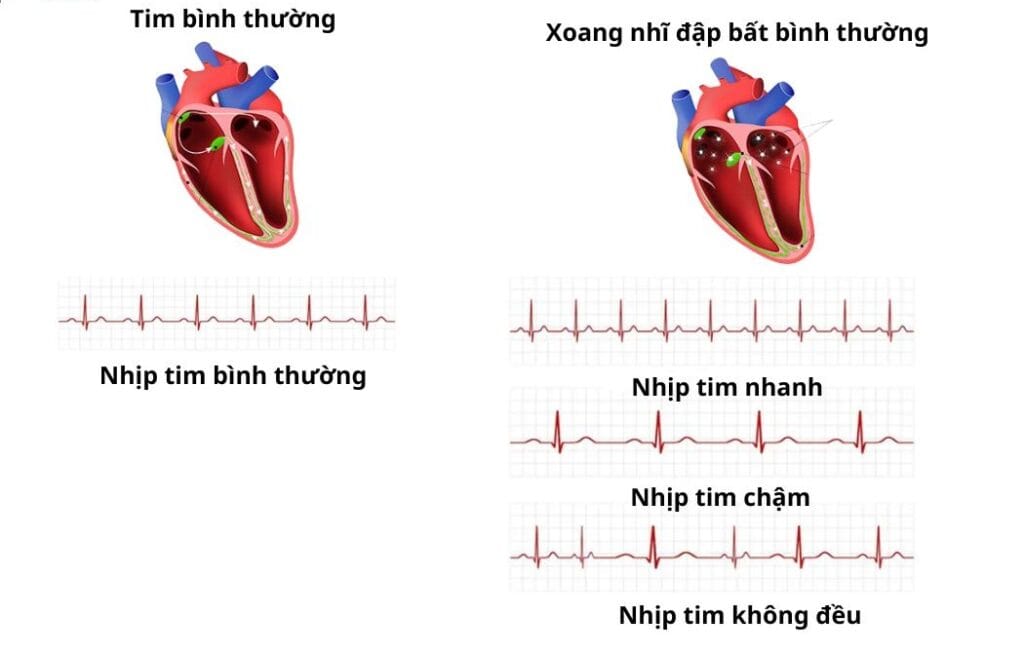
Prevention: In addition to seeing a doctor immediately when experiencing the above symptoms, patients also need to control risk factors such as high blood pressure and high cholesterol. Limit and preferably avoid stimulants such as coffee or alcohol. At the same time, maintain a healthy lifestyle with a reasonable diet and regular exercise.
Valvular heart disease
Valvular heart disease is a fairly common condition that occurs when the heart valves do not function properly due to narrowing or not closing properly, causing abnormal blood flow in the heart, leading to impaired heart function. This condition is common in older adults due to this cause or can develop from other heart diseases or infections.
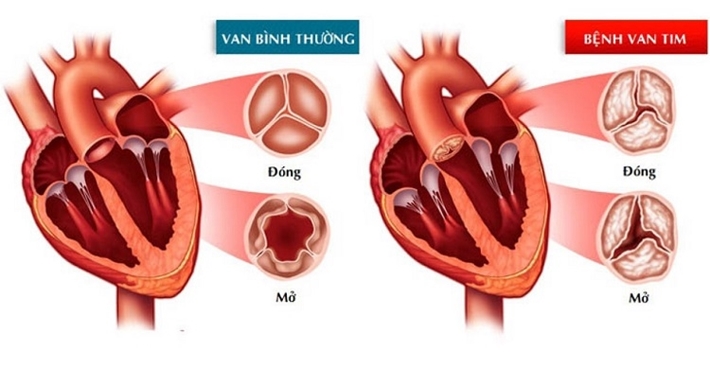
Signs and symptoms: When suffering from heart valve disease, the patient will feel tired, short of breath especially during physical activity, swelling in the legs or abdomen.
Prevention: It is necessary to minimize risk factors such as high blood pressure, coronary artery disease, and have regular health check-ups to detect diseases early in order to promptly treat diseases that can affect the heart valve such as infections or genetic diseases.
Myocardial infarction
Myocardial infarction, also known as a heart attack, occurs when part of the heart muscle does not receive enough blood and oxygen due to blockage of the coronary arteries. This will damage or even kill heart muscle cells, leading to heart failure or death if not treated promptly.
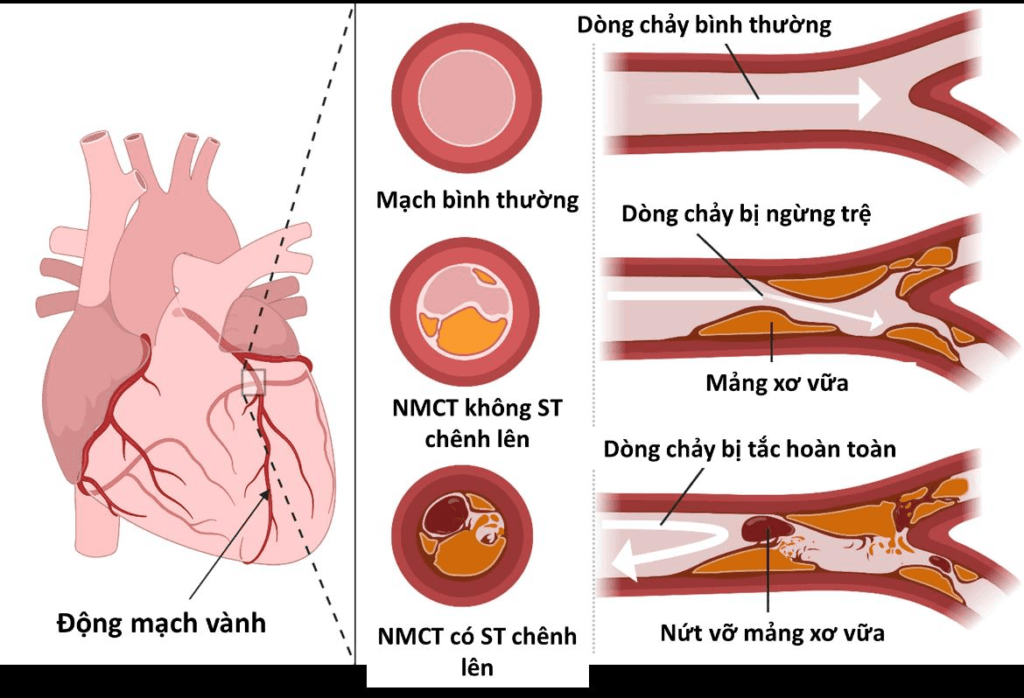
Signs and symptoms: When experiencing a heart attack, the patient will have severe chest pain as if a heavy object is pressing on the chest. The pain can spread to the left arm, shoulder or jaw, causing the patient to feel short of breath, tired, nauseous or dizzy.
Prevention: Maintain a healthy diet and exercise regularly to control blood pressure, cholesterol and blood sugar. Avoid alcohol and tobacco, and have regular health check-ups, especially if you have a family history of heart disease.
Hypertension
High blood pressure is very common in the elderly. Once high blood pressure persists, it can damage arteries and increase the risk of cardiovascular diseases such as coronary artery disease, heart failure, stroke, and kidney disease. These are quite dangerous and should not be ignored by patients.
Signs and symptoms: In the early stages, this condition often has no obvious symptoms, some people only feel headaches, shortness of breath, dizziness. However, these are also signs to note, especially for the elderly.
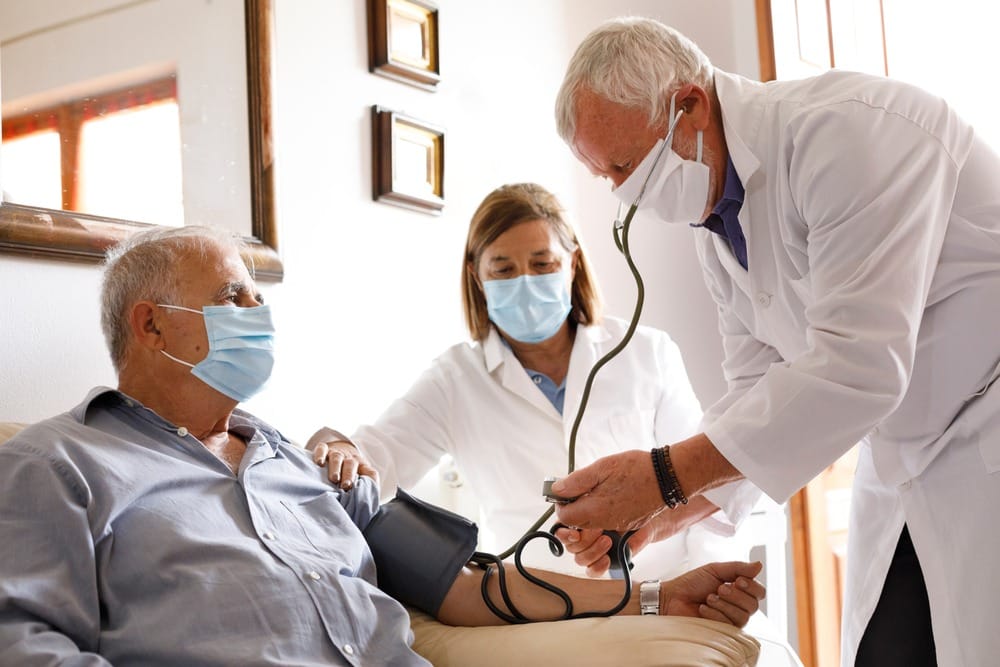
Prevention: To control high blood pressure, patients need to maintain a reasonable weight, lose weight if overweight, limit salt in their diet, exercise regularly and monitor blood pressure regularly.
In general, cardiovascular diseases are a group of serious diseases that often occur in the elderly and can lead to many dangerous complications if not detected and treated promptly.
Therefore, from now on, it is necessary to have good health care and prevention measures to ensure the maintenance of cardiovascular health. In particular, for the elderly, there should be more attention from family members or use specialized care and nursing services to facilitate monitoring, early detection of cardiovascular disease and timely treatment.




